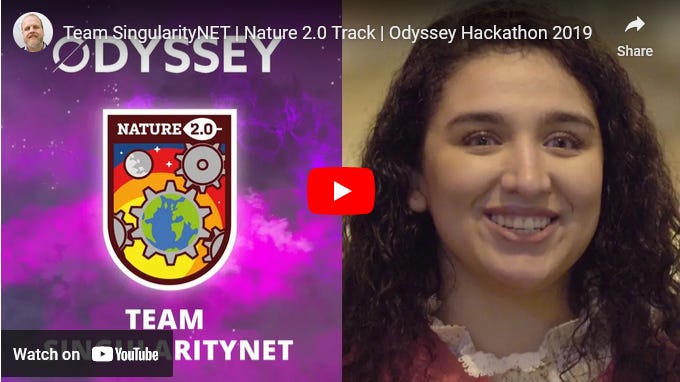Web3 community engagement
Fostering Web3 community development and engagement
Typical approaches to encourage growth and activate a Web3 community:
Strategic Opportunities
1. Educational Workshops and Webinars: Hosting regular educational sessions on Web3 concepts, smart contracts, and the role of oracles can help build a knowledgeable community. This can include hands-on tutorials and Q&A sessions with experts.
2. Hackathons and Competitions: Organizing hackathons or coding competitions can encourage community members to develop innovative solutions using smart contracts and oracles. This fosters creativity and collaboration.
3. Incentive Programs: Implementing incentive programs such as token rewards, NFTs, or staking rewards can motivate community members to actively participate and contribute.
4. Partnerships with Influencers: Collaborating with influencers and thought leaders in the Web3 space can help attract new members and increase visibility.
5. Community Governance: Encouraging community members to participate in decentralized governance can give them a sense of ownership and responsibility. This can include voting on key decisions and contributing to the development of the platform.
Examples of Web3 Community Engagement Campaigns
1. Crypto Quest: A community-driven campaign where participants complete various blockchain-related challenges to earn tokens and NFTs. The campaign includes educational webinars, coding challenges, and a final competition with significant prizes.
2. DeFi Decathlon: A series of events focused on decentralized finance (DeFi) applications. Participants develop and showcase their DeFi solutions, with opportunities for mentorship, networking, and recognition in the community.
3. Token Trailblazers: A campaign that encourages community members to create and launch their own social tokens. Participants receive guidance on token creation, marketing strategies, and community building, with rewards for the most innovative and successful tokens.
4. Governance Gala: An event aimed at promoting decentralized governance within Web3 projects. Community members participate in governance discussions, vote on key decisions, and contribute to the development of governance frameworks.
5. Metaverse Meetup: A virtual event series that brings together Web3 enthusiasts to explore the metaverse, discuss emerging technologies, and collaborate on new projects. The meetups include interactive sessions, guest speakers, and networking opportunities.
Example Campaign: blockchain and AI hackathon: Odyssey (2019)
Campaign: "Odyssey" Hackathon (from 2019)
Objective: Through the hackathon, Odyssey aims to connect governmental, corporate, and non-profit launching partners — so that everyone can co-create new solutions to complex problems.
Details: Ten tracks. Each track has a core focus, which helps to group the teams interested in a common issue — so that they can benefit from each other’s resources. Examples of Odyssey tracks include Fossil Free Future, Nature 2.0, Digital Citizenship, Inclusive Banking, Feeding the Future, and Future of Cargo Insurance.
Notes: The SingularityNET Team participated in the Odyssey Hackathon.
Team SingularityNET | Nature 2.0 Track | Odyssey Hackathon 2019
Update… Next → AI
Web3 community campaigns, AI:
1. DeAgentAI and OKX Airdrop Campaign
Objective: Promote DeAgentAI's AlphaX AI agent product.
Details: Users downloaded the OKX wallet, followed DeAgentAI on social media, and shared the campaign to participate in a $50,000 USDT airdrop.
Results: Over 3 million unique wallets and 35 million on-chain transactions within a month, significantly increasing community engagement and visibility.
2. Reach Labs Game Promotion Campaign
Objective: Promote Web3 games by rewarding players for sharing them.
Details: Players earned tokens and NFTs for promoting games like "Champions Ascension" and "Conquest."
Results: Increased user acquisition and social sharing, with a notable rise in game downloads and active players.
Notes: The Reach Labs campaign did not have a direct link to AI development, AI implementation, or AI gaming. Instead, it focused on user acquisition and social sharing by incentivizing players to promote Web3 games through rewards like tokens and NFTs. The campaign used traditional marketing strategies and community engagement rather than AI technologies.
3. Bluesky Social Media Campaign
Objective: Promote Bluesky as a decentralized social media platform.
Details: Encouraged users to join Bluesky, participate in community discussions, and share their experiences on other social media platforms.
Results: Rapid user growth from 13 million to 24 million users within a month, highlighting the platform's appeal and potential for Web3.
Notes: The Bluesky campaign also did not have a direct link to AI development, AI implementation, or AI gaming. Bluesky is a decentralized social media platform that emphasizes user choice, community moderation, and transparency. While Bluesky itself does not train AI on user content, it allows third-party developers to access public posts via its open API, which can be used for AI training by external parties. However, Bluesky's campaign focused on promoting the platform's features and growing its user base rather than directly implementing AI technologies.
4. SubQuery AI Integration Campaign
Objective: Integrate AI Apps into Web3 platforms for enhanced user experiences.
Details: Demonstrated AI-powered customer support bots, wallet assistants, and content moderation tools.
Results: Improved user satisfaction and engagement, with a significant reduction in support ticket resolution times and enhanced platform reliability.
5. DAO Governance Assistance Campaign
Objective: Enhance community participation in decentralized governance.
Details: AI Apps analyzed proposals, summarized key points, and highlighted potential outcomes to help users make informed decisions.
Results: Increased participation rates in DAO voting, fostering a more engaged and informed community.
These campaigns grew the community and activated it by providing incentives, educational resources, and prospective solutions. Do any of these examples stand out to you? What are your ideas for community engagement campaigns?
Author’s note: from my point of view I’m intrigued by how smart contracts and Proof-of-Stake may play a role in commerce, hobbies, health, and public service. At the most basic level, what will be net positive for communities, and families at the household level? -Marky



